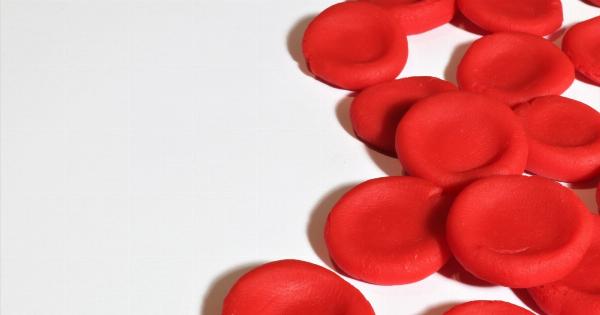Did you know that your blood type can provide valuable insights into your overall health? Understanding your blood group is essential as it can help you make informed decisions regarding your diet, exercise routine, and even potential health risks.
In this article, we will explore the different blood groups and how they relate to your well-being. Let’s dive in!.
The ABO Blood Group System
The ABO blood group system is the most well-known and widely used blood classification system. It categorizes blood into four main groups: A, B, AB, and O.
These groups are determined by the presence or absence of specific antigens on the surface of red blood cells.
Blood Group A
Individuals with blood group A have A antigens on their red blood cells and A antibodies in their plasma. It is important to note that blood type A can be further divided into subcategories: A positive (A+) and A negative (A-).
Those with A+ blood type have the Rh antigen, while those with A- blood type lack it.
People with blood group A are often advised to follow a balanced diet that incorporates plenty of fruits, vegetables, and whole grains. They may have a lower risk of developing certain types of cancer, such as pancreatic cancer.
However, individuals with blood group A may have a slightly higher risk of heart disease.
Blood Group B
Blood group B individuals have B antigens on their red blood cells and B antibodies in their plasma.
Similar to blood group A, blood type B can also be further categorized as B positive (B+) and B negative (B-), depending on the presence or absence of the Rh antigen.
Those with blood group B are often advised to maintain a varied diet that includes a balance of meat, dairy, grains, and vegetables. They may have a lower risk of developing certain inflammatory conditions, such as multiple sclerosis.
However, individuals with blood group B may have a higher likelihood of developing stomach cancer.
Blood Group AB
Blood group AB individuals have both A and B antigens on their red blood cells, but neither A nor B antibodies in their plasma.
This blood group can also be subdivided based on the presence or absence of the Rh antigen – AB positive (AB+) and AB negative (AB-).
Those with blood group AB are often advised to follow a diet that incorporates aspects of both blood types A and B.
They may have a lower risk of developing heart disease but should still focus on maintaining a balanced diet and regular exercise regimen.
Blood Group O
People with blood group O have neither A nor B antigens on their red blood cells, but both A and B antibodies in their plasma.
Like the other blood groups, O blood type can also be divided into O positive (O+) and O negative (O-) based on the presence or absence of the Rh antigen.
Individuals with blood group O are often advised to consume a high-protein diet, with a focus on lean meats, fish, and vegetables.
They may have a lower risk of developing pancreatic cancer but may face an increased risk of gastric ulcers and certain forms of arthritis.
Rh Factor and Pregnancy
In addition to the ABO blood groups, the Rh factor plays a vital role in pregnancy. If a mother is Rh-negative, but the baby’s father is Rh-positive, complications may arise due to potential blood incompatibility between the mother and the fetus.
In such cases, appropriate medical care and monitoring are necessary.
Blood Transfusions and Compatibility
Understanding blood compatibility is crucial during blood transfusions. In general, individuals with blood type A can receive blood from type A or type O donors, while those with blood type B can receive blood from type B or type O donors.
People with blood type AB are considered universal recipients, meaning they can receive blood from all blood groups. On the other hand, individuals with blood type O are universal donors, as their blood can be given to individuals of any blood group.
Know Your Blood Group, Support Your Health
Knowing your blood group is not only beneficial in emergencies but also allows you to make choices that support your overall health and wellbeing.
By understanding the implications of your blood type, you can tailor your diet, exercise routine, and lifestyle to optimize your health and reduce the risk of certain diseases.
Conclusion
Your blood group provides valuable insights into your health and can guide decisions regarding diet, exercise, and potential health risks. The ABO blood group system categorizes blood into four main groups: A, B, AB, and O.
Understanding your blood group and its implications empowers you to lead a healthier and more informed life.

























